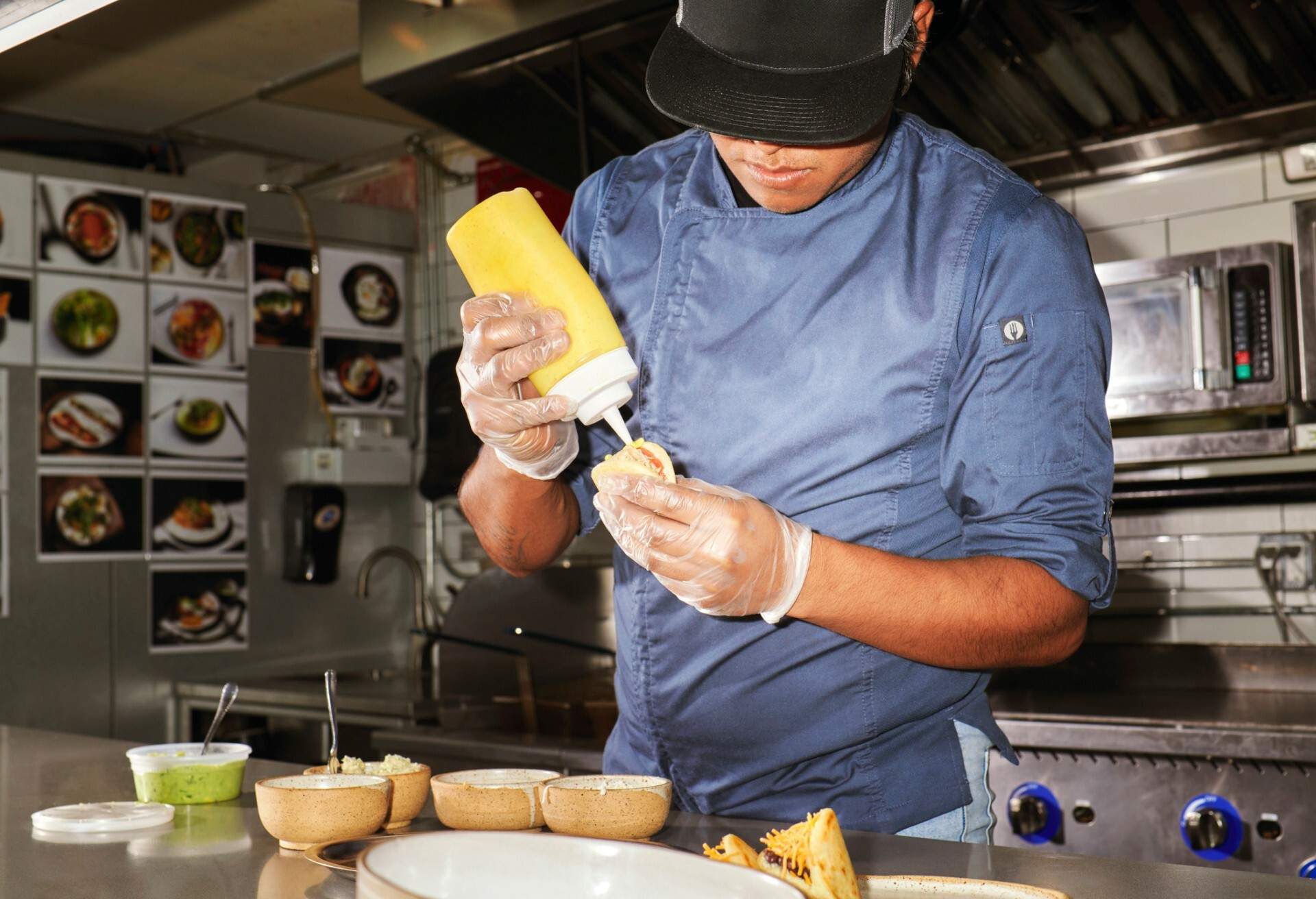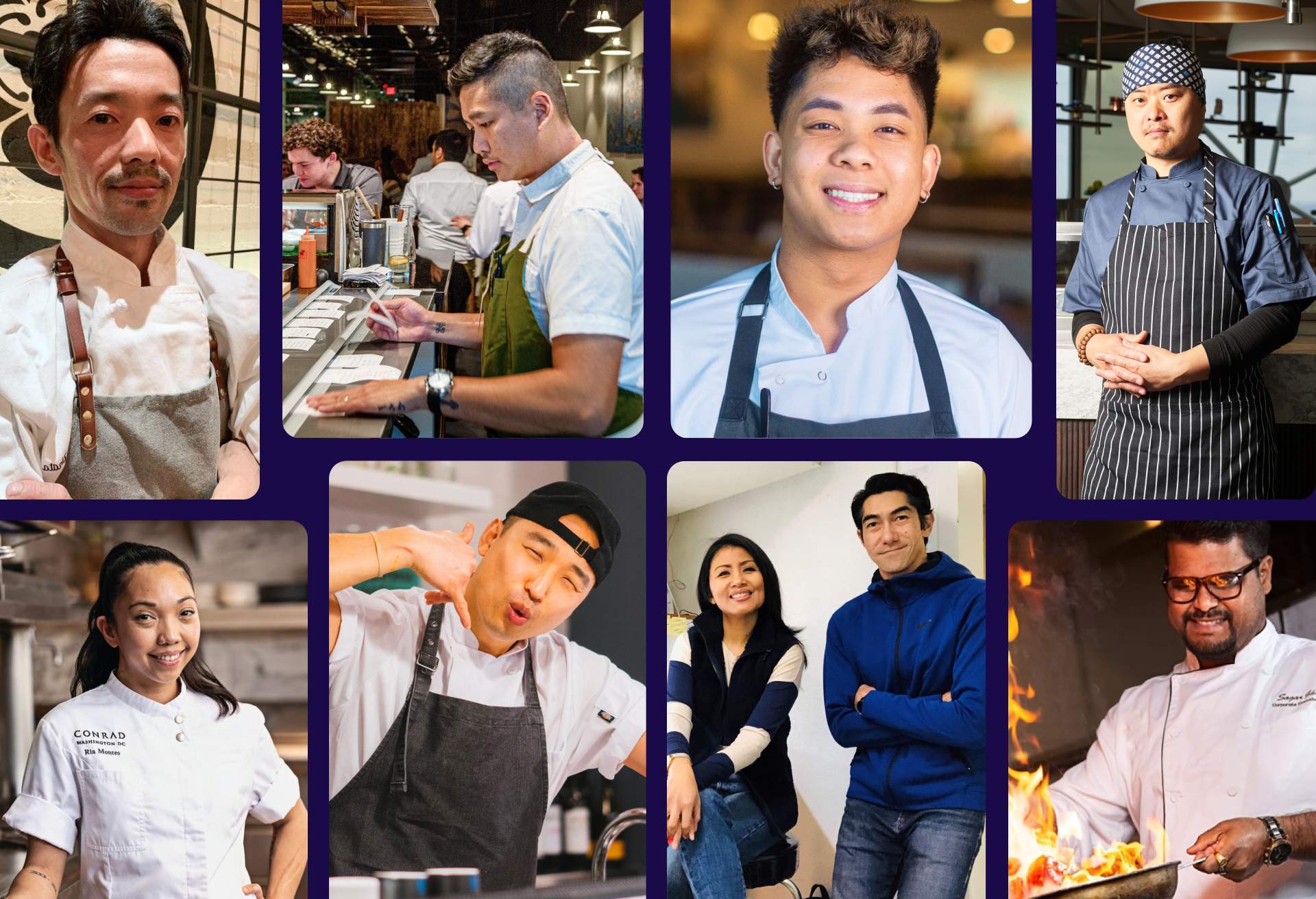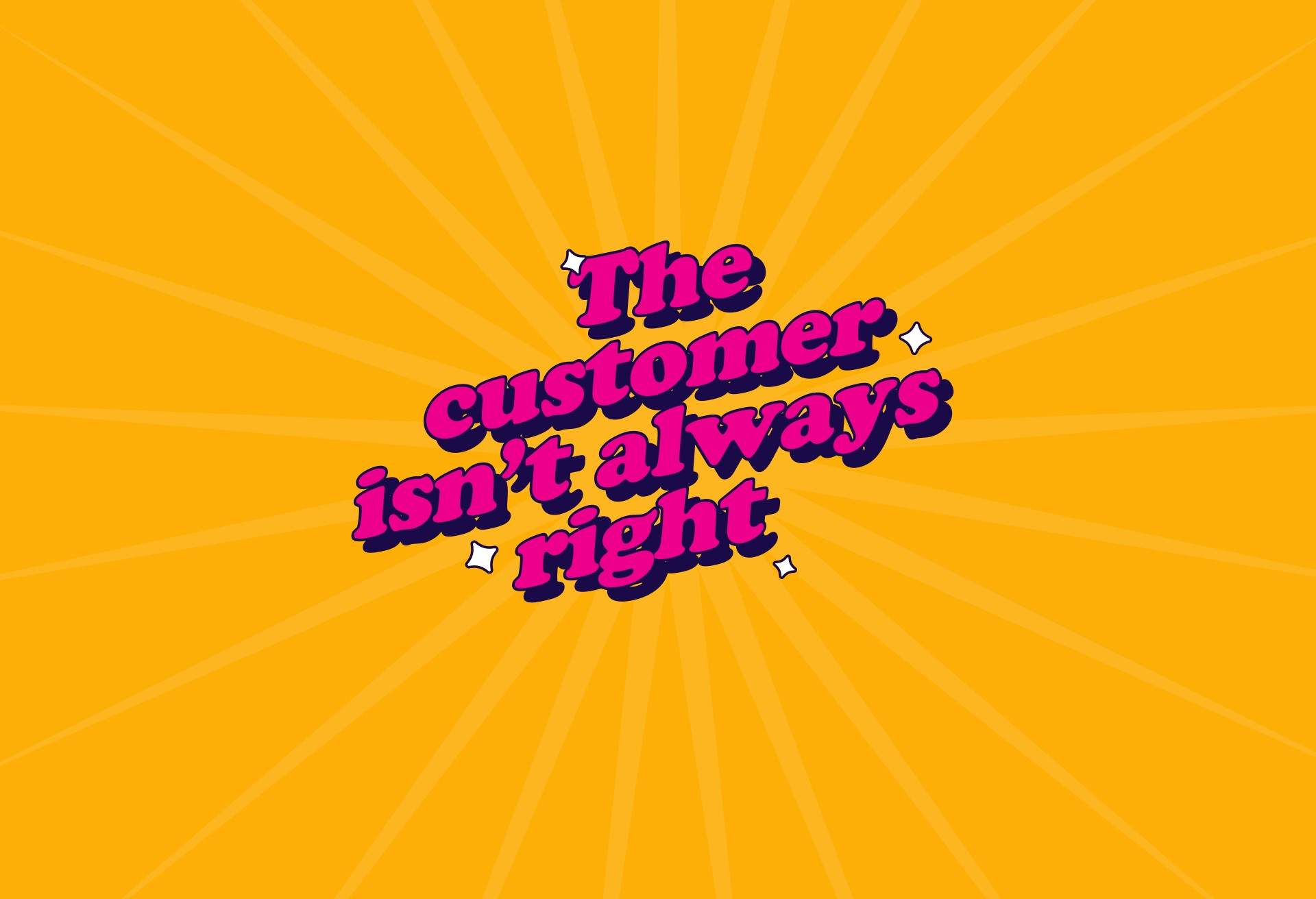Restaurants give the world a place to celebrate, gather with loved ones, and escape into an experience where worries are few and the joys many. But the view from a dining chair can sometimes obstruct the fact that people who work in hospitality may be fighting their own battles, making it difficult to work in the industry they love.
May is Mental Health Awareness Month, an opportune time to highlight mental health concerns in the industry that often go unnoticed by those outside of it. A 2021 hospitality industry study found that 80% of restaurant employees in the US “believe that mental health issues, such as feeling depressed, anxious, or manic, represent a major challenge facing the industry.”
Recently, famed NYC chef and restaurateur Greg Baxtrom wrote about his mental health struggles on Instagram—a rare display of candidness from a top chef that underscores the importance of highlighting mental health concerns among restaurant staff.
With that in mind, restaurateurs and chefs across the country told OpenTable what they hope diners will keep in mind the next time they go out to eat—to make it a joyous experience on both sides of the kitchen.
People are behind every plate of food
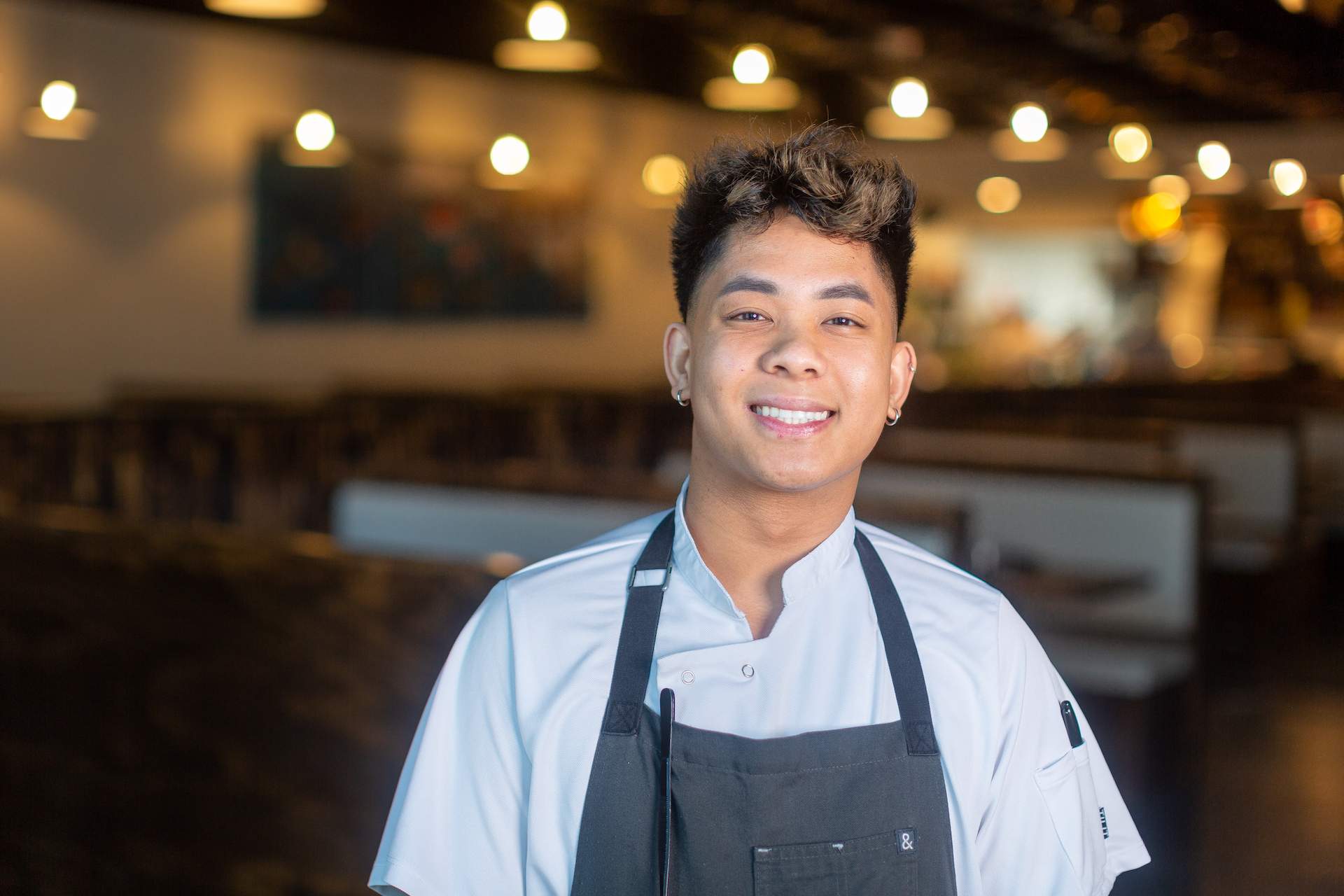
Food and drink are central to any restaurant, but humans are central to creating the experiences diners enjoy.
“Before I’m a cook, before I’m a chef, I’m a human being,” says Jio Dingayan, chef de cuisine at Money Cat and pastry chef of Tobiuo in Houston. “A lot of clientele, when they go out to eat, they view everything as a business… but they disregard the people that make that restaurant great.”
Tip for diners: Consider asking your server their name if they don’t introduce themselves. Try taking it a step further by asking about the chef’s name and send them your compliments if you enjoyed the meal.
Restaurant work is demanding, and workers take pride in their careers.
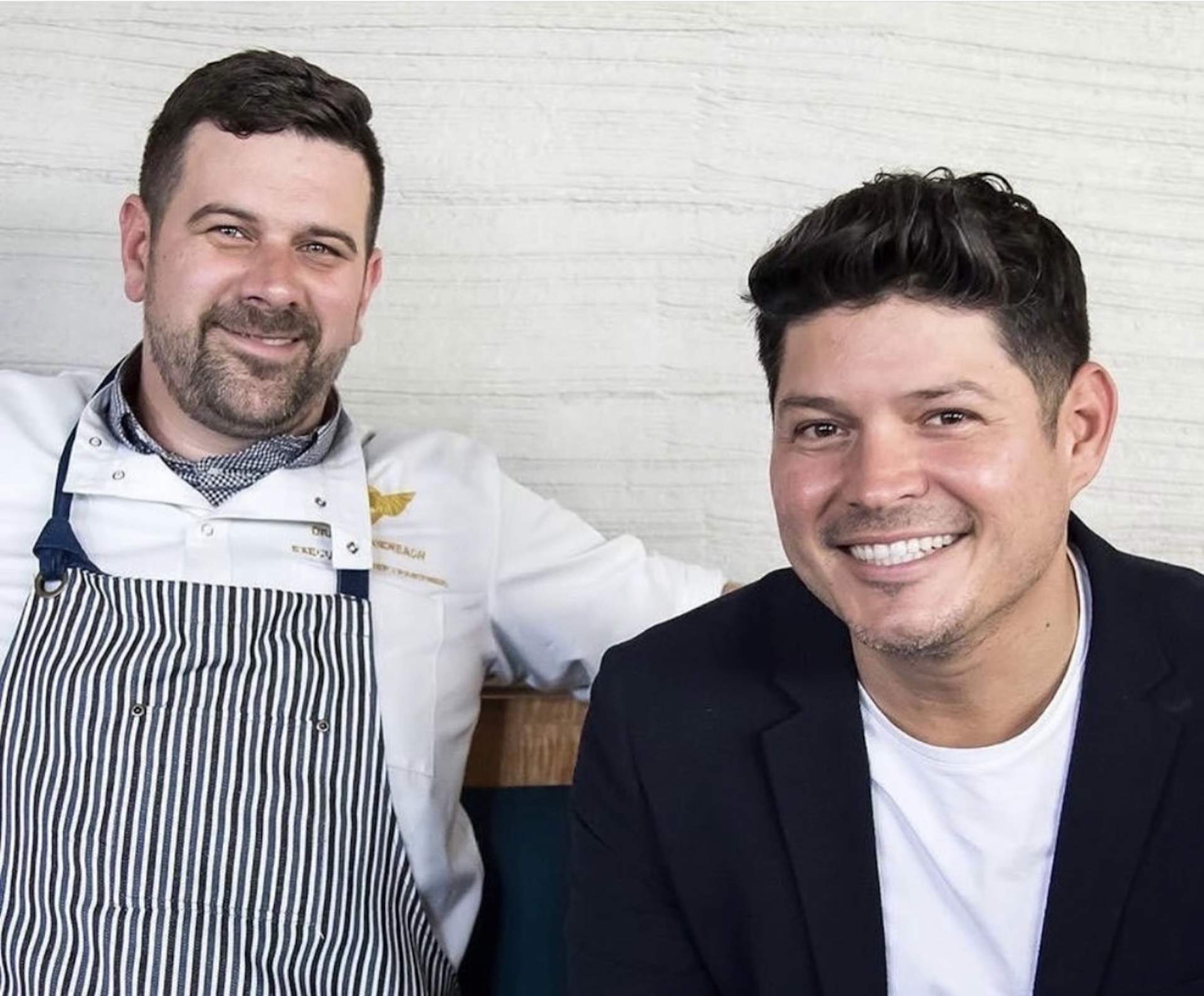
Many in the hospitality industry not only face the rigors of the job, but also a lack of respect for their careers.
“There is a misconception that some have about people who work in restaurants,” says Mikey Corona, the general manager and co-owner of Nashville restaurant The Mockingbird. “I think we have to get rid of the statement that chefs, cooks, dishwashers, servers, busboys and bartenders don’t have ‘real jobs.’ Whenever somebody makes that kind of statement, it can chip away at somebody’s self-esteem.”
The pandemic and popular shows such as Hulu’s The Bear opened people’s eyes to the high-pressure environment in restaurants. Recognizing the team effort goes a long way.
“The dishwasher is just as, if not more, important than the host,” says Brian Riggenbach, the executive chef and co-owner of The Mockingbird. “They have different roles, but they’re all linchpins in the machine that you need to make the restaurant go.”
Tip for diners: Consider going out of your way to recognize restaurant workers for their work—whether it is acknowledging the host on your way out or thanking servers or kitchen staff on the way to the restroom.
Restaurant workers want to own their mistakes. Civility and kindness go a long way.
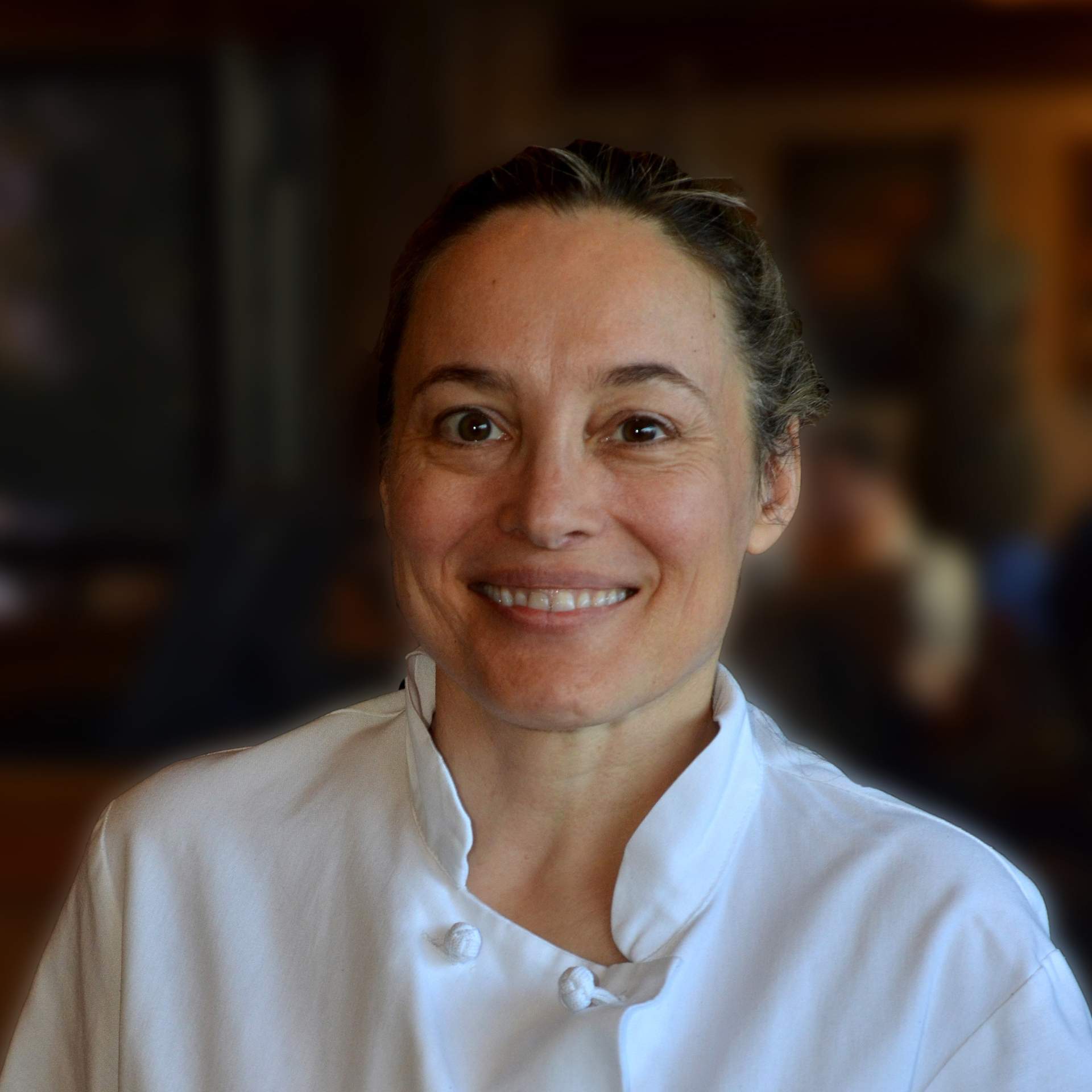
Everyone has an off day at work, but criticism and small mistakes are especially embarrassing when they’re amplified online for the world to see. When diners head to a keyboard to complain rather than engaging in person, it can negatively affect morale.
“The number-one goal in our restaurants is that every person should leave happy,” says Sarah Stegner, chef and owner of Northbrook, Illinois restaurant Prairie Grass Cafe. “Every restaurant wants the person that comes in to consider it a place they can come and be nurtured.”
Tip for diners: When there’s an issue, consider speaking to restaurant staff the same way you would to a colleague at work. Yes, providing feedback in person can feel awkward, but chefs and restaurateurs feel constructive criticism goes a long way in letting them address the problem in person.
Mental health resources for restaurant staffers are scarce. Here’s how to help.
The lack of resources for staffers coupled with a historic expectation in the industry to keep going takes a toll. “You don’t show that that burn really hurt, or that it hurt when I dropped that pot on my foot,” Stegner of Prairie Grass Cafe says, noting that the mindset of many in the industry is not to show weakness. “The healthy thing to do is to acknowledge that it’s difficult and reach out to your network when you need help.”
Even when staffers are ready for help, services are often out of reach. “We offer health insurance for employees and pay for half of their monthly dues,” Corona says. “But most mental health providers that we reach out to on behalf of employees don’t take health insurance.”
Tip for diners: Try volunteering at one of these organizations or support them with a donation. Here are six groups OpenTable chefs recommend.
- The Abundance Setting’s 3 Chefs 3 Moms program: Supports women with children in the culinary industry, offering opportunities to network and build a foundation with a chef who has similar experiences.
- Asian Mental Health Collective: Works to de-stigmatize mental health within the Asian community and make resources more accessible to Asian communities worldwide.
- Big Table: This non-profit partners with doctors, dentists, therapists, auto mechanics, and lawyers to help restaurant workers in crisis.
- The Giving Kitchen: An Atlanta-based nonprofit that provides emergency assistance to food-service workers with financial support and a network of community resources
- Nashville Restaurant Radio: The NRR podcast connects hospitality workers through sharing stories, ideas, successes, and failures and provides a rare behind-the-scenes view to diners.
- Southern Smoke Foundation: This hospitality workers-run non-profit provides a safety net for workers through financial aid, scholarships, and emergency relief.
Lauren McDowell is a Houston-area native and freelance food and lifestyle writer with an M.A. in Food Studies from New York University.

